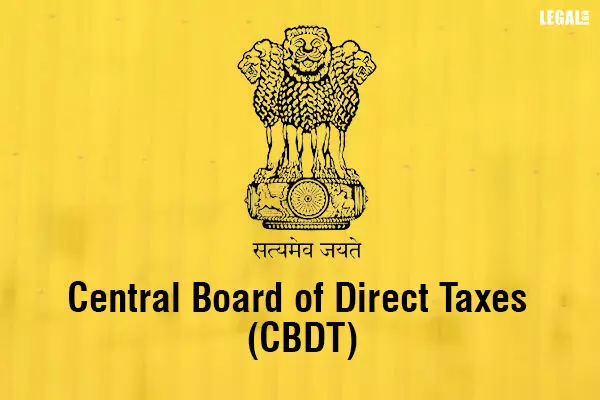- Home
- News
- Articles+
- Aerospace
- Artificial Intelligence
- Agriculture
- Alternate Dispute Resolution
- Arbitration & Mediation
- Banking and Finance
- Bankruptcy
- Book Review
- Bribery & Corruption
- Commercial Litigation
- Competition Law
- Conference Reports
- Consumer Products
- Contract
- Corporate Governance
- Corporate Law
- Covid-19
- Cryptocurrency
- Cybersecurity
- Data Protection
- Defence
- Digital Economy
- E-commerce
- Employment Law
- Energy and Natural Resources
- Entertainment and Sports Law
- Environmental Law
- Environmental, Social, and Governance
- Foreign Direct Investment
- Food and Beverage
- Gaming
- Health Care
- IBC Diaries
- In Focus
- Inclusion & Diversity
- Insurance Law
- Intellectual Property
- International Law
- IP & Tech Era
- Know the Law
- Labour Laws
- Law & Policy and Regulation
- Litigation
- Litigation Funding
- Manufacturing
- Mergers & Acquisitions
- NFTs
- Privacy
- Private Equity
- Project Finance
- Real Estate
- Risk and Compliance
- Student Corner
- Take On Board
- Tax
- Technology Media and Telecom
- Tributes
- Viewpoint
- Zoom In
- Law Firms
- In-House
- Rankings
- E-Magazine
- Legal Era TV
- Events
- Middle East
- Africa
- News
- Articles
- Aerospace
- Artificial Intelligence
- Agriculture
- Alternate Dispute Resolution
- Arbitration & Mediation
- Banking and Finance
- Bankruptcy
- Book Review
- Bribery & Corruption
- Commercial Litigation
- Competition Law
- Conference Reports
- Consumer Products
- Contract
- Corporate Governance
- Corporate Law
- Covid-19
- Cryptocurrency
- Cybersecurity
- Data Protection
- Defence
- Digital Economy
- E-commerce
- Employment Law
- Energy and Natural Resources
- Entertainment and Sports Law
- Environmental Law
- Environmental, Social, and Governance
- Foreign Direct Investment
- Food and Beverage
- Gaming
- Health Care
- IBC Diaries
- In Focus
- Inclusion & Diversity
- Insurance Law
- Intellectual Property
- International Law
- IP & Tech Era
- Know the Law
- Labour Laws
- Law & Policy and Regulation
- Litigation
- Litigation Funding
- Manufacturing
- Mergers & Acquisitions
- NFTs
- Privacy
- Private Equity
- Project Finance
- Real Estate
- Risk and Compliance
- Student Corner
- Take On Board
- Tax
- Technology Media and Telecom
- Tributes
- Viewpoint
- Zoom In
- Law Firms
- In-House
- Rankings
- E-Magazine
- Legal Era TV
- Events
- Middle East
- Africa
CBDT: Insolvency and Bankruptcy Board of India is Eligible for Tax Exemption on Grant-in-Aid, Fines, Fees, Interest Income Accrued

CBDT: Insolvency and Bankruptcy Board of India is Eligible for Tax Exemption on Grant-in-Aid, Fines, Fees, Interest Income Accrued
The Ministry of Finance by its Department of Revenue- Central Board of Direct Taxes (CBDT) issued a notification which notified that the Insolvency and Bankruptcy Board of India shall be eligible for the income tax exemption under clause (46) of section 10 of the Income Tax Act, 1961.
In exercise of the powers conferred by clause (46) of section 10 of the Income-tax Act, 1961, the Central Government hereby notified or the purposes of the said clause, ‘Insolvency and Bankruptcy Board of India’, a Board established by the Central Government, in respect of the following specified income arising to that Board, namely:
(a) Grants-in-aid received from Central Government;
(b) Fees received under the Insolvency and Bankruptcy Code, 2016;
(c) Fines collected under the Insolvency and Bankruptcy Code, 2016; and
(d) Interest income accrued on (a), (b) and (c) above.
The aforesaid notification shall be effective subject to the conditions that Insolvency and Bankruptcy Board of India, New Delhi:
(a) shall not engage in any commercial activity;
(b) activities and the nature of the specified income shall remain unchanged throughout the financial years; and
(c) shall file return of income in accordance with the provision of clause (g) of sub-section (4C) of section 139 of the Income Tax Act, 1961.
The said notification is applicable with respect to the financial years 2022-2023, 2023-2024, 2024-2025, 2025-2026 and 2026-2027.



